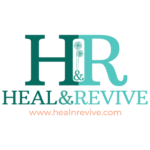Understanding Addiction and Substance Abuse, and Navigating the Path to Recovery
Addiction and substance abuse are complex issues that impact individuals, families, and communities worldwide. Understanding the nature of addiction, the effects of substance abuse disorders, and available resources for recovery and support is essential in addressing these challenges. In this article, we will delve into addiction, explore substance abuse disorders, and provide information on resources that can help individuals embark on the path to recovery.
Understanding Addiction:
- Nature of Addiction: Addiction is a chronic, relapsing brain disease characterized by compulsive drug or alcohol use despite negative consequences. It is a complex interaction of biological, psychological, and social factors.
- Substance Dependence: Substance dependence refers to the physical and psychological reliance on a substance. Individuals may experience withdrawal symptoms and cravings when attempting to reduce or stop using the substance.
- Risk Factors: Various factors contribute to the development of addiction, including genetic predisposition, environmental influences, mental health conditions, and exposure to trauma or stress.
Substance Abuse Disorders:
- Alcohol Abuse: Alcohol abuse involves excessive or harmful drinking patterns that result in negative consequences, such as health issues, impaired functioning, and strained relationships.
- Drug Abuse: Drug abuse refers to the misuse or excessive use of illicit substances or the misuse of prescription medications. It can lead to significant health problems, legal issues, and social challenges.
Effects of Addiction and Substance Abuse:
- Physical Health Consequences: Substance abuse can have severe physical health effects, including organ damage, increased risk of infectious diseases, cardiovascular problems, and neurological impairments.
- Mental Health Impact: Substance abuse often co-occurs with mental health disorders, such as depression, anxiety, or bipolar disorder. Substance abuse can worsen these conditions and contribute to a cycle of self-destructive behaviors.
- Social and Relationship Consequences: Addiction can strain relationships, lead to social isolation, and impact work or educational performance. Individuals may experience financial difficulties and legal issues due to their substance abuse.
Resources for Recovery and Support:
- Treatment Programs: Seek professional help from addiction treatment centers or programs that offer evidence-based therapies, detoxification services, counseling, and support groups.
- Support Groups: Participate in support groups such as Alcoholics Anonymous (AA) or Narcotics Anonymous (NA), which provide a safe space for individuals to share their experiences, receive support, and learn from others on the recovery journey.
- Counseling and Therapy: Engage in individual therapy or group therapy to address the underlying causes of addiction, develop coping strategies, and work on relapse prevention.
- Community Resources: Utilize community resources like helplines, crisis hotlines, and local organizations specializing in addiction and substance abuse recovery. These resources can provide guidance, information, and access to support services.
- Family and Friends: Reach out to trusted family members and friends who can offer support, understanding, and encouragement throughout the recovery process.
Addiction and substance abuse disorders are complex issues that require comprehensive understanding and support. By recognizing the nature of addiction, the effects of substance abuse, and the available resources for recovery and support, individuals can take the first steps towards breaking free from the cycle of addiction. Remember, recovery is a unique journey, and seeking help is a sign of strength. With the right resources, professional assistance, and a strong support network, individuals can embark on the path to recovery, healing, and a healthier, fulfilling life.

